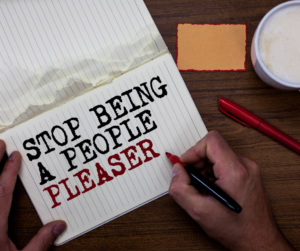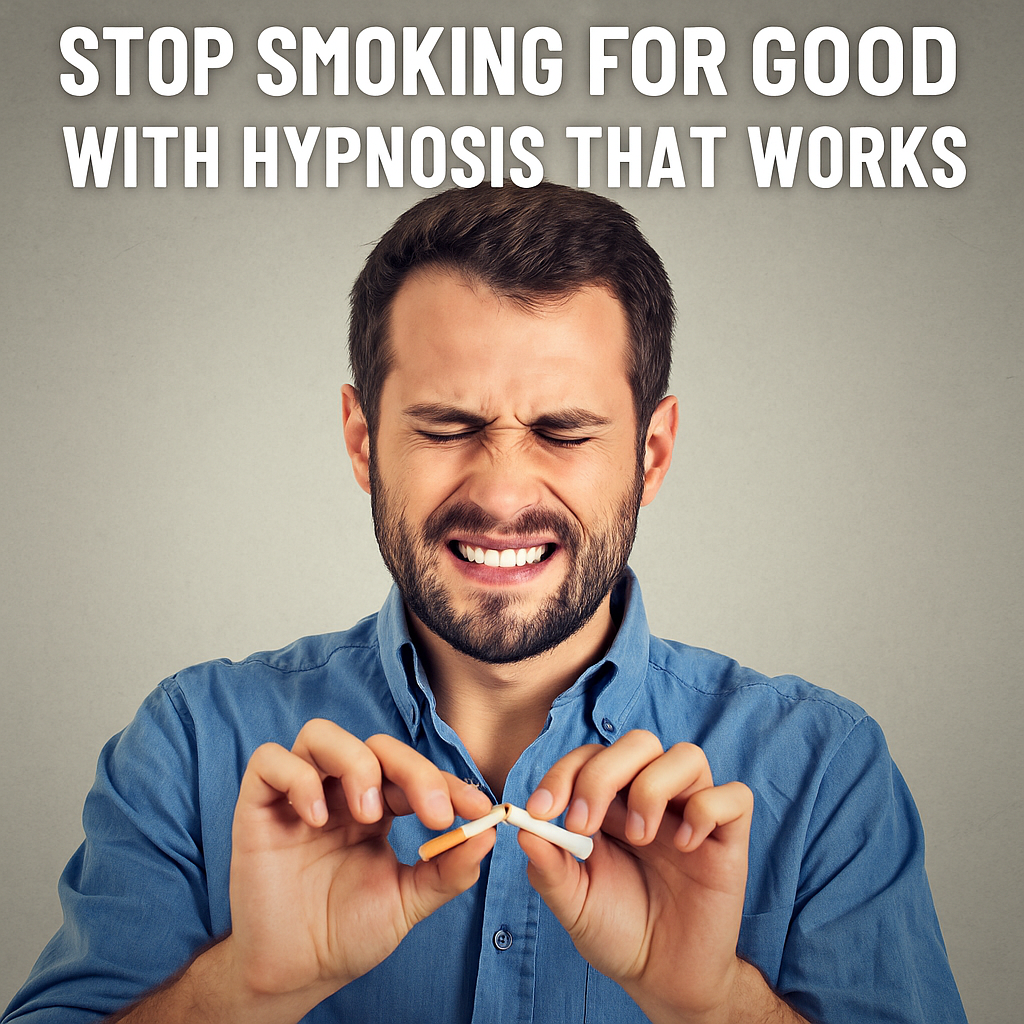Overcoming People-Pleasing and Self-Blame with Empathy and Hypnosis
Do you often find yourself saying yes when you want to say no? Do you blame yourself for things beyond your control? If so, you may be caught in the trap of people-pleasing tendencies and self-blame. In this article, we’ll explore how these patterns can lead to anxiety and stress, and more importantly, we’ll discuss practical strategies and the potential benefits of utilizing hypnosis to break free from these debilitating patterns and prioritize your own well-being.
Understanding People-Pleasing and Self-Blame
People-pleasing tendencies and self-blame often go hand in hand, creating a vicious cycle of anxiety and low self-esteem. People-pleasers have a strong desire to gain approval and avoid conflict, often at the expense of their own needs and boundaries. They may sacrifice their own well-being to meet the expectations of others, leading to feelings of resentment and exhaustion. Similarly, individuals prone to self-blame take responsibility for negative outcomes, even when they are not at fault. They internalize criticism and setbacks, leading to feelings of guilt and shame.

Challenges Faced:
- Difficulty Setting Boundaries: People-pleasers struggle to set and maintain healthy boundaries, leading to overcommitment and burnout.
- Fear of Rejection: The fear of rejection and disapproval drives people-pleasers to prioritize others’ needs over their own, often at the expense of their mental and emotional health.
- Negative Self-Talk: Individuals prone to self-blame engage in negative self-talk, blaming themselves for perceived failures and shortcomings, even when they are not responsible.
- Low Self-Worth: People-pleasing and self-blame erode self-esteem and self-worth, leaving individuals feeling unworthy and inadequate.
Strategies for Breaking Free From This Pattern
Breaking free from people-pleasing tendencies and self-blame requires self-awareness, courage, and self-compassion. Here are some practical strategies to help you reclaim your autonomy and prioritize your well-being:
- Practice Self-Reflection: Take time to reflect on your motivations and behaviors, identifying patterns of people-pleasing and self-blame. Journaling can be a powerful tool for gaining insight into your thoughts and feelings.
- Set Boundaries: Learn to assertively communicate your needs and boundaries, saying no when necessary and prioritizing self-care and well-being.
- Challenge Negative Thoughts: Challenge negative self-talk and beliefs, replacing them with self-affirming statements and positive affirmations.
- Cultivate Self-Compassion: Treat yourself with kindness and understanding, acknowledging that it’s okay to make mistakes and prioritize your own needs.
- Seek Support: Reach out to supportive friends, family members, or a therapist for guidance and encouragement, sharing your struggles and seeking validation and understanding.
The Role of One Belief Away Hypnosis
Hypnosis
Hypnosis offers a unique and powerful approach to overcoming people-pleasing tendencies and self-blame by accessing the subconscious mind and facilitating lasting change.
Here’s how hypnosis can help:
- Identifying Root Causes: Hypnosis can uncover the underlying beliefs and experiences that contribute to people-pleasing tendencies and self-blame, enabling individuals to address these issues at their source.
- Rewriting Negative Scripts: Through hypnotherapy, individuals can reprogram negative thought patterns and beliefs, replacing them with empowering and self-affirming scripts.
- Building Self-Confidence: Hypnosis can boost self-confidence and self-esteem, helping individuals assertively assert their needs and boundaries without fear of rejection or disapproval.
- Enhancing Self-Awareness: Hypnotherapy promotes self-awareness and mindfulness, enabling individuals to recognize and challenge maladaptive behaviors and beliefs in real-time.
- Empowering Change: Hypnosis empowers individuals to take control of their thoughts, emotions, and behaviors, facilitating lasting change and personal growth.
Breaking free from people-pleasing tendencies and self-blame is a journey of self-discovery and empowerment. By implementing practical strategies and incorporating hypnosis as a transformative tool, individuals can reclaim their autonomy, prioritize their well-being, and cultivate a greater sense of self-worth and self-compassion.
Remember that you are worthy of love and respect, and with the right support and mindset, you can break free from anxiety-inducing patterns and live a fulfilling and authentic life.
To learn more about what hypnosis is and experience a FREE session, watch my program.
The post Overcoming People-Pleasing and Self-Blame with Empathy and Hypnosis first appeared on Indy Hypnosis Center.



